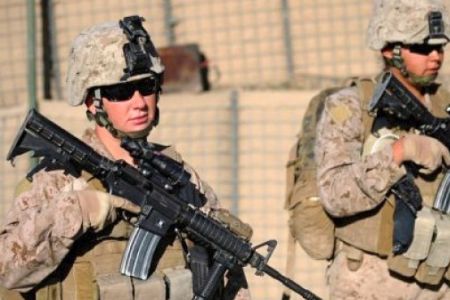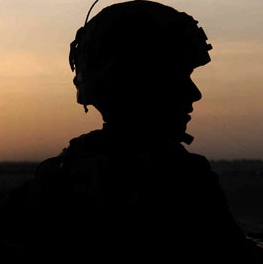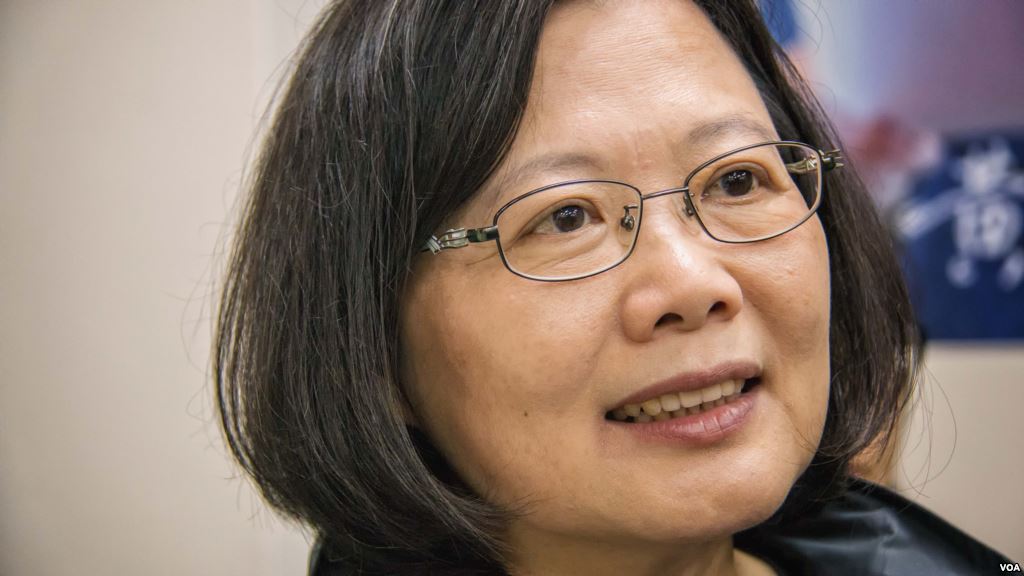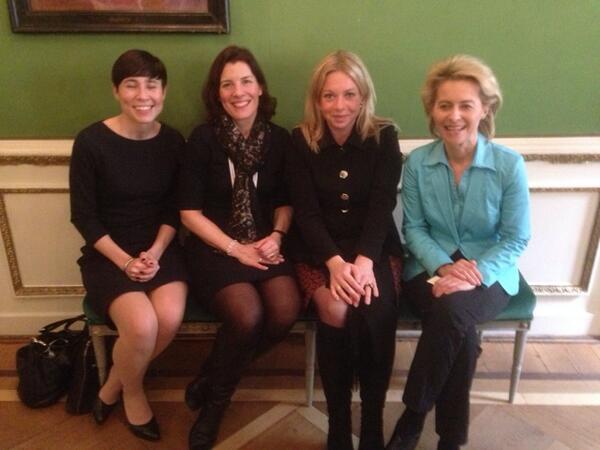[captionpix align=”left” theme=”elegant” width=”320″ imgsrc=” http://previous.presstv.ir/photo/20120524/mehjoo20120524232848483.jpg” captiontext=”Two female Army Reserves officers are suing the US Department of Defense and the Army in an effort to reverse the ban on women serving in combat roles.”]
In 1994 the Pentagon released a new policy declaring “service members are eligible to be assigned to all positions for which they are qualified, except that women shall be excluded from assignments to units below the brigade level whose primary mission is to engage in direct combat on the ground.” This document prohibited women from serving in on-the-ground combat units, such as the infantry, armour, and Special Forces and institutionalized gender barriers in the US Army, which prevent women from having the same access to opportunity as their male counterparts.
Baldwin et al v. Panetta et al
Two female Army Reserves officers, Sgt. Maj. Jane Baldwin and Col. Ellen Haring, are suing the US Department of Defense and the Army in a bid to reverse this military policy. At the heart of this lawsuit is the legal claim that the ban violates women’s Fourteenth Amendment right because of their exclusion based “solely on the basis of gender,” a right afforded to US citizens under the Constitution.
Not only does the ban restrict their current and future earnings — including retirement — it also seriously hinders their potential for promotion and advancement since frontline combat service is critical. Even if women, like the two reservists mentioned above, attained the ranking of a four-star general it would be nearly impossible for them to be considered for the country’s top military posts without this experience. Greg Jacob, Policy Director for Service Women Action Network, states with this ban, “we will not see a woman as Commandment of the Marine Corps, or CENTCOM Commander, or Chairman of the Joint Chiefs of Staff.”
Stopping Short
The Army has released several statements in an attempt to stymie the blowback from this lawsuit. Army officials announced that they were considering opening the elite Ranger school to women. They have also been formally transferring women into previously all-male battalions. As a result of this rule change, 14,000 new positions are open to women that are closer to the frontline, including intelligence, mechanic, and signal corps roles — but this avoids the real issue of 250,000 military jobs that are still restricted from women because they entail serving on the frontline.
The military’s ‘willingness’ to explore admitting women to special ops training schools is hard to take seriously for two reasons. Firstly, women trained in combat-intensive schools will not be able to use the training in combat because of the ban. Secondly, the Army has long been plagued by an attitude that women are too weak and too fragile to handle violence and combat. The UK also continues to prohibit women from serving on the frontlines, a way of institutionalized thinking summed up by Lt.-Col. (Ret.) Erle Drane: “God made us in two genders… there is a moral responsibility to treat women differently than men. Men have always been the protectors and women have always been the nurturers.”
Contrary to this perception, Lt.-Col. Jennie Corrigan, a Canadian servicewomen who has seen combat in Bosnia and Afghanistan, observes that “you go through training as a team and you learn how to apply your rules of engagement…the application of violence is a completely gender-neutral concept.” In her experience, “the guy who ends up saving the day on the battlefield is not the guy who looks best in the weight room.”
Behind the Times
In Canada, women have been integrated into all corners of the Canadian Forces, a feat that sets us apart from our British and American allies. Ottawa removed restrictions to women holding combat occupations in 1989— with the exception of service on submarines, a restriction that was lifted in 2001. Lt.-Col. Corrigan, CO of the Engineer Regiment of Canada’s Taskforce in Kandahar offers some advice for our Southern neighbors: “The main lesson learned from our integration adventure is that operational effectiveness is only related to leadership…operational effectiveness has nothing to do with the gender of the folks composing your force.” Lt-Col. Corrigan along with other Canadian servicewomen are currently in Australia sharing their combat experiences with Australian female soldiers who will soon have full access to all army jobs, including combat, as of January 2013.
It is not just Canada that allows female soldiers to serve in infantry roles. Full active combat roles are also available to women in New Zealand, Denmark, Finland, France, Italy, Germany, Norway, Israel, Serbia, Sweden, and Switzerland, while China, Eritrea, Israel, Libya, Malaysia, North Korea, Peru, and Taiwan draft women into infantry service.
[captionpix align=”left” theme=”elegant” width=”320″ imgsrc=” http://nationalpostnews.files.wordpress.com/2011/10/germany-canada-us-nato-trai.jpg?w=620″ captiontext=” Women filled 8.3% of Canada’s combat positions in Afghanistan.”]
The Ultimate Sacrifice: Iraq & Afghanistan
Included in the American lawsuit is the fact that women are already engaged in combat in Afghanistan and Iraq. Instead of officially assigning them to combat units, the military is deliberately circumventing the exclusion by “attaching” them to such units through a bureaucratic loophole due to a shortage in troops. This is a dangerous policy because women are unofficially engaging in combat without receiving the appropriate combat-arms training necessary for engaging with hostile forces. Moreover, they aren’t receiving credit or acknowledgement for this kind of service.
Battle lines no longer neatly define the conflicts we are engaged in, and the rules of engagement are more ambiguous. Instead we fight a clandestine enemy that can attack at anytime from anywhere. This new kind of warfare is putting women directly in the line of conflict, even if their jobs are not considered “ground combat.” Sgt. Betty Kendricks, Air Force Chief Master (Ret.) reports that female soldiers who move supplies between posts in Afghanistan and Iraq are directly and frequently under attack from insurgents even though they are not in combat positions.
Women have made the ultimate sacrifice for their country. Over 130 female American soldiers have been killed in Iraq and Afghanistan and 800 have been wounded. It is time the US military honoured the risk servicewomen make everyday in protecting the freedoms of Americans, including equality, by affording them the same freedom.
Pulling the Trigger
At a time when frontline experience is deemed crucial for advancement it is easy to see why official policy changes are needed in order to create a structure that allows women to advance to the highest military strata.
At the end of the day women put on the uniform for the same reason as men. Despite all the talk regarding the differences that exist between the sexes when it comes to combat all that really matters is how well one can pull the trigger.




